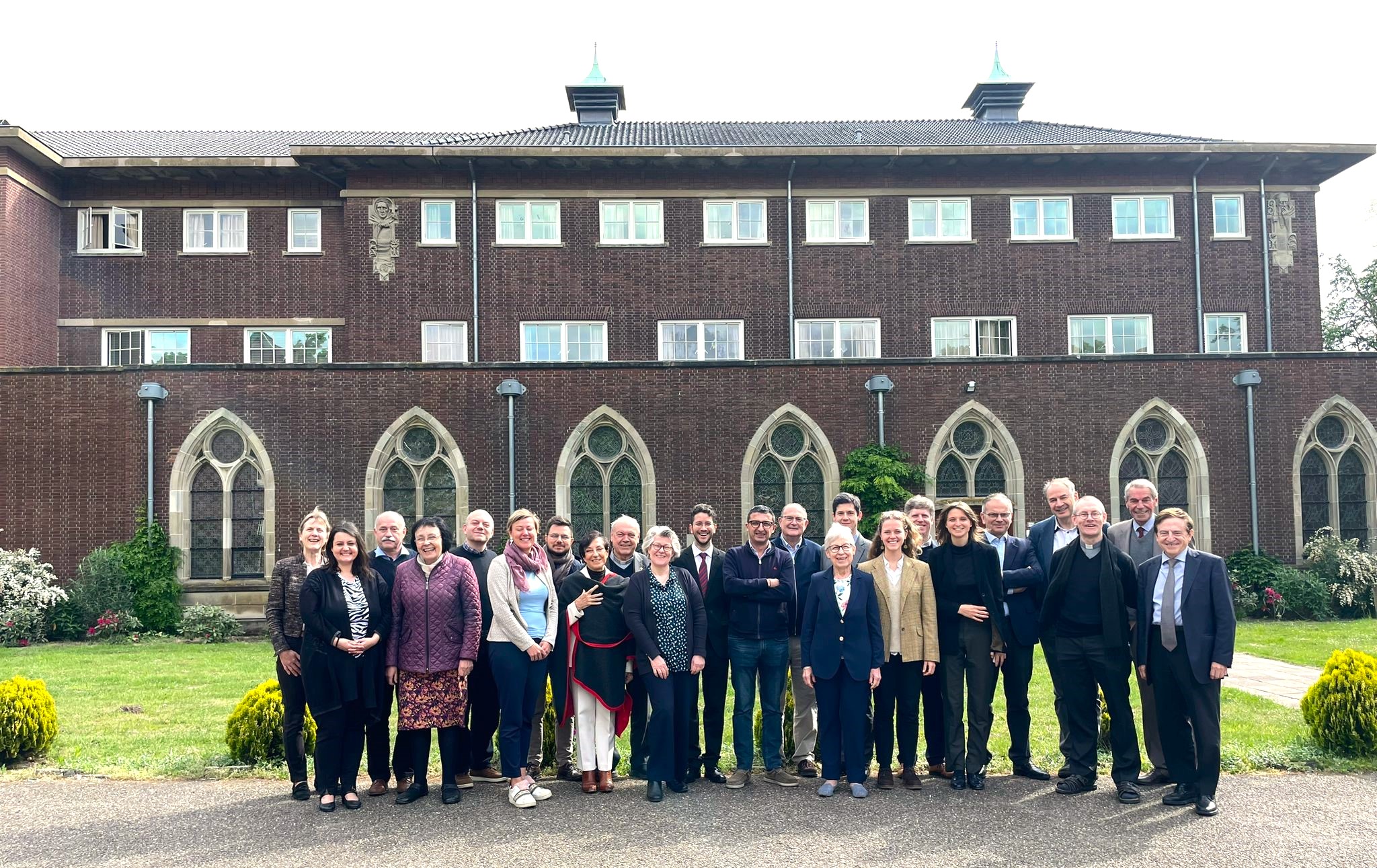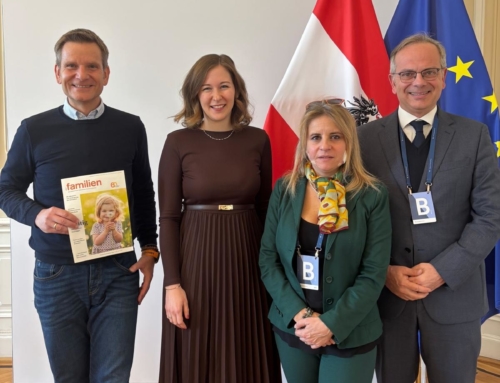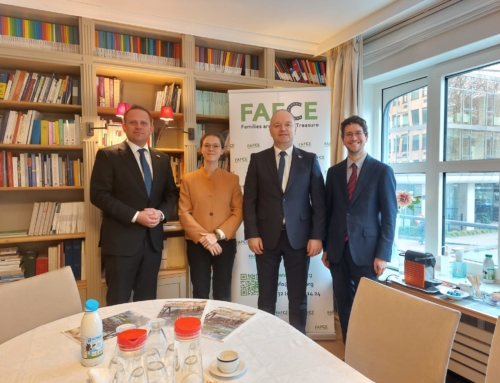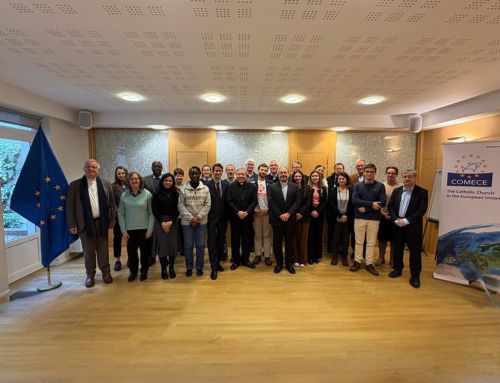FAFCE Spring Board Resolution 2025
Resolution on the Family and Family Networks
Hertogenbosch, 6th May 2025
The Federation of Catholic Family Associations in Europe (FAFCE), inspired by the Catholic Social Teaching, invites the European institutions and the national governments to put families at the centre.
Recognizing that the family enriches both the person and society, by putting the person at the center of attention (cfr. Compendium of the Social Doctrine of the Church 213),
Recalling the teaching of the Catholic Church that the family is the sanctuary of life and the first school of the social virtues necessary for every society, as it connects members of different generations above the only criteria of economic efficiency (cfr. Comp. 222),
Recalling the irreplaceable and primary role of the family in the transmission of faith, values, culture, and identity from one generation to the next (cfr. Comp. 229),
Considering the many challenges facing families today, including economic hardship, loneliness and geographical distance, the family offers solidarity among its members (Comp. 247),
Considering that family networks offer solidarity between families,
Considering that there is no sustainable development without intergenerational solidarity,
Recalling the FAFCE Resolution on “The crisis of loneliness in times of digital transition: family networks as agents of change”,
Recalling the Amoris Laetitia Encyclical Letter and the Declaration Dignitas Infinita,
Recalling the UN General Assembly Resolution A/C.3/78/L.15 on Preparations for and observance of the thirtieth anniversary of the International Year of the Family,
Our Federation resolves the following:
- Upholding the dignity of the family, as the natural and universal community founded on marriage and ordered to the gift of life, as a sacred institution that offers solutions to the current social and economic challenges.
- Having in mind the principle of subsidiarity, to respect the responsibilities of families to raise their children in accordance with their philosophical and religious convictions, recognizing the family’s role as the first and primary educator of children.
- Affirming the complementarity of man and woman in marriage as the foundation of the family, in a world in which the disparity of opinions and ways of life stress the importance of respecting each other’s specificity.
- Having in mind the principle of the dignity of the human person, to work toward a culture of life, where every human being is welcomed, protected, and valued from conception to natural death.
- Having in mind the principle of solidarity, to support families, especially those suffering from poverty, displacement, or violence, ensuring that they receive the necessary material, psychological, and spiritual assistance to thrive and fulfill their mission in society. Family networks can offer this assistance.
- Supporting all families and helping them to be strong, independent and integrated in society, focusing in particular on “families living in dire poverty and great limitation” (AL 49). Large families with many children, single mothers and migrant families should be a particular concern.
- Having in mind the principle of common good, to call on all sectors of society and economy, starting from governments and faith communities, to create an environment that empowers the family, recognizing its irreplaceable role in building a just and compassionate social order so that families can flourish in a more human and less individualistic society.
Conclusion
In fidelity to the Gospel and the social teaching of the Church, the Federation of Catholic Family Associations in Europe commits itself to witness and promote the family, recognizing that the future of humanity passes through the family. We look at the Holy Family of Nazareth as an example and an inspiration in our efforts to build families rooted in love, truth, and faith.
Following Pope Francis’ advice in 2017 in the occasion of the 20th anniversary of FAFCE that family associations “should help remind everyone that there is no better ally for the integral progress of society than to favour the presence of families in the social fabric”, FAFCE reaffirms that “families are thus a kind of leaven that helps to make the world more humane and more fraternal, where no one feels rejected or abandoned.”
Further His Holiness encouraged FAFCE to “develop with creativity new methods and resources, so that the family can exercise, both in the ecclesial and the civil sectors.”









